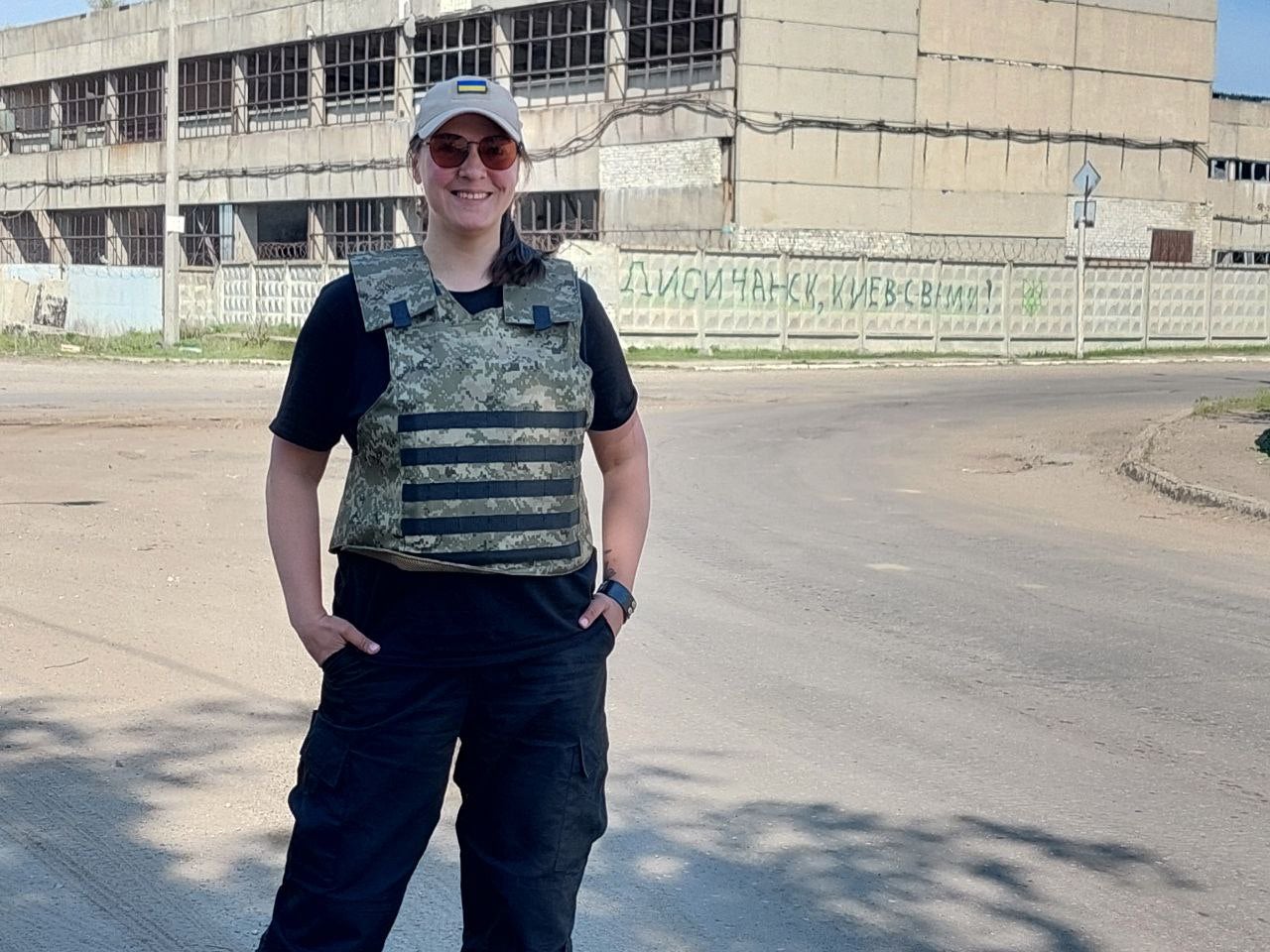In the Words of Hanna Demydenko: “Our struggle continues to address the needs of women in the battlefield, ensure their rehabilitation and advance their rights in the army”
Date:

Hanna Demydenko, 38 years old, is an activist and a human rights defender. She has worked at many NGOs, including the Ukrainian Women Veterans Movement “Veteranka,” a local NGO supported by UN Women aiming for equal rights for female military personnel. She is also the Operations Manager of “The Legal Hundred,” a local NGO that provides social and legal protection to veterans of the Ukrainian Armed Forces and their families.
In 2013, Hanna was planning to pursue a career in online marketing abroad. But her plans were radically changed by the Revolution of Dignity and the ensuing the Russian-Ukrainian war in 2014. Instead of going abroad as she had planned, she became a volunteer military paramedic. In 2014, her husband joined the Donbas Battalion. That’s when she found out she was pregnant. But neither her pregnancy nor the situation in the country stopped her social activism.
At the end of 2015, a colleague and I set up a social protection service to help army volunteers and their families, including those of deceased volunteers, to obtain legal recognition and state social guarantees and benefits. Almost no one believed we could succeed, but we kept collecting the necessary documents of those killed and wounded. We prepared and handed over a full package of documents to the families and accompanied them throughout the legal proceedings.
After seven years of struggle, our hard work paid off and our volunteer organization co-authored the draft law No. 2045-1 on the recognition of volunteers as combatants so they could access the social protection and state support reserved to military veterans and their families.
In 2022, me and my family learned of Russia’s full-scale invasion of our country via a phone call from our relatives. I went by the window and heard explosions. The city was being shelled by the Russians. I was very scared, especially for my eight-year-old daughter. I dropped her off at my husband's parents, and I went to work at the Ministry of Veterans Affairs, and my husband went to the Azov military base.
In March 2022, my best friend, a Special Forces Officer, went missing in the city of Izium. It was terrible news and a very difficult period. I wanted to go look for him, but I couldn’t. The city of Izium was under fire. Six months later, my friend’s body was found when Izium was liberated. A cruise missile had killed him. I realized then that if you don’t know where to get information and who to contact, it is very difficult to find out the whereabouts of missing persons. I had connections and experience and I wanted to help families find their missing loved ones. After this, I started working on the issue of missing persons, including through collaboration with the International Commission on Missing Persons.
In 2023, I was invited to brief the International Commission on Missing Persons in Kyiv, and then in the Hague. I had a lot to share about the procedures and processes related to missing persons in Ukraine. Currently, there are around 30 thousand people who are still missing. We are working day and night to bring every Ukrainian back to their family.
During this period, I continued advocating for equal rights for women military personnel and for the legal recognition of military volunteers, including women. The Veteranka Movement remains a place of unity and solidarity for me. With support from UN Women, I work with fellow female veterans to advocate for the rights of women in the army. We also support the rehabilitation of female veterans, so they come back to accessible homes, stable income, quality medical care, and welcoming communities.
Since 2014 when Russia first invaded Ukraine, thousands of women have served in the Ukrainian Armed Forces. Now, there are around 60,000 women in the army. Thanks to our efforts, Ukraine has changed the law allowing women to hold combat positions. Despite these strides, much remains to be done to achieve gender equality in the army.
Our struggle continues to address the needs of women in the battlefield, ensure their rehabilitation and advance their rights in the army.
The publication was produced in the framework of UN Women’s project "Transformative Approaches to Achieving Gender Equality in Ukraine" with the support of the Office of the Vice Prime Minister for European and Euro-Atlantic Integration of Ukraine and funding from the Government of Sweden.